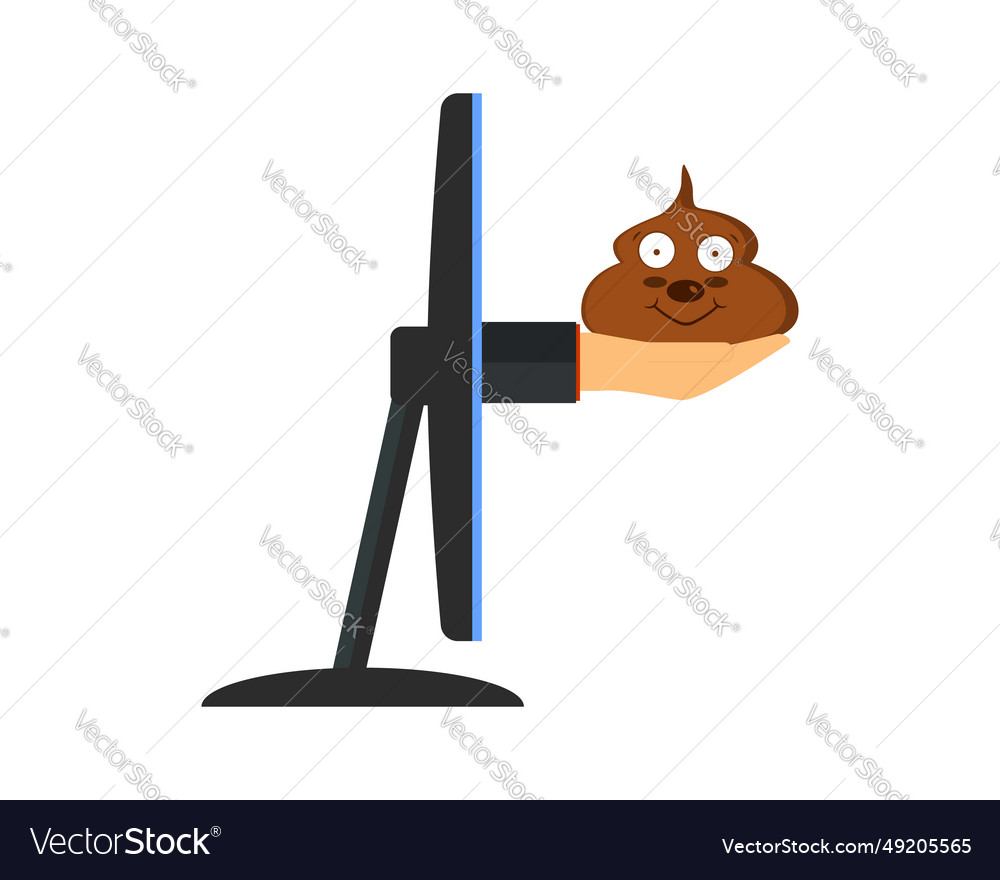Holding Poop In Hand: Understanding The Science, Risks, And Prevention
Holding poop in hand is an unusual but significant topic that often raises questions about hygiene, health, and the human body's response to such situations. Whether it's accidental or intentional, understanding the implications of this act is crucial for maintaining personal health and well-being. In this article, we will delve into the science behind this phenomenon, its potential risks, and how to prevent it.
Many people might find themselves in situations where they inadvertently end up holding poop in their hands. This could happen due to various reasons, such as caring for pets, infants, or even during outdoor activities. While it may seem like a minor issue, the consequences can be far-reaching if proper hygiene practices are not followed.
This article aims to provide comprehensive information about holding poop in hand, including the science behind it, the associated risks, and effective prevention strategies. By the end of this article, readers will have a better understanding of how to handle such situations safely and maintain their health.
Read also:Linda Marie Grossman The Remarkable Journey Of An Iconic Figure
Table of Contents
- The Science Behind Holding Poop in Hand
- Risks Associated with Holding Poop in Hand
- Importance of Hygiene in Handling Waste
- Prevention Strategies
- Health Implications and Diseases
- Proper Care for Pets and Infants
- Handling Waste in Outdoor Activities
- Debunking Common Myths
- Practical Tips for Maintaining Cleanliness
- Conclusion and Call to Action
The Science Behind Holding Poop in Hand
Holding poop in hand involves direct contact with fecal matter, which is composed of waste products from the digestive system. Feces contain a variety of substances, including undigested food, bacteria, viruses, and other microorganisms. Understanding the composition of feces is essential to comprehend the risks involved in handling it.
What Happens When You Touch Feces?
When you touch feces, your skin comes into contact with a host of microorganisms. These microorganisms can include harmful pathogens such as E. coli, Salmonella, and norovirus. The skin acts as a natural barrier, but if there are cuts or abrasions, these pathogens can enter the body and cause infections.
- E. coli: A common bacteria found in feces that can cause gastrointestinal issues.
- Salmonella: Responsible for food poisoning and can lead to severe illness if ingested.
- Norovirus: A highly contagious virus that causes vomiting and diarrhea.
Risks Associated with Holding Poop in Hand
While holding poop in hand might seem harmless, it poses several risks to personal health and hygiene. These risks are not limited to the individual but can also affect those around them.
Spread of Infections
One of the primary risks of holding poop in hand is the potential spread of infections. Pathogens from feces can easily transfer to surfaces, objects, and other individuals, leading to outbreaks of diseases such as gastroenteritis and hepatitis A.
According to the Centers for Disease Control and Prevention (CDC), proper hand hygiene is one of the most effective ways to prevent the spread of infections. Washing hands thoroughly with soap and water after handling feces is crucial to maintaining health.
Importance of Hygiene in Handling Waste
Good hygiene practices are essential when dealing with waste, whether it's human or animal feces. Hygiene not only protects the individual but also prevents the spread of diseases to others.
Read also:Understanding Gramace A Comprehensive Guide To Its Uses Benefits And Risks
Steps for Proper Handwashing
Effective handwashing involves several steps to ensure all germs are removed:
- Wet your hands with clean, running water.
- Apply soap and lather vigorously for at least 20 seconds.
- Pay attention to areas between fingers and under nails.
- Rinse thoroughly with clean water.
- Dry hands using a clean towel or air dryer.
Prevention Strategies
Preventing situations where you might end up holding poop in hand involves adopting proactive measures. These strategies can help minimize the risk of exposure to harmful pathogens.
Using Protective Gear
When dealing with waste, it's advisable to use protective gear such as gloves. Gloves act as a barrier between your skin and the fecal matter, reducing the risk of contamination. After use, dispose of gloves properly and wash your hands thoroughly.
For those working in environments where handling waste is a regular occurrence, such as healthcare or waste management, wearing appropriate personal protective equipment (PPE) is mandatory.
Health Implications and Diseases
Exposure to fecal matter can lead to various health issues, ranging from mild discomfort to severe illnesses. Understanding these implications is crucial for taking preventive measures.
Common Diseases Transmitted Through Fecal Matter
- Gastroenteritis: Inflammation of the stomach and intestines, often caused by viral or bacterial infections.
- Hepatitis A: A liver infection caused by the hepatitis A virus, transmitted through contaminated food or water.
- Parasitic Infections: Such as giardiasis and cryptosporidiosis, which can cause digestive issues.
Proper Care for Pets and Infants
Caring for pets and infants often involves handling their waste. Proper care and hygiene practices are essential to ensure the health and well-being of both the caregiver and the individual being cared for.
Tips for Managing Pet Waste
- Use designated poop bags when walking your pet.
- Dispose of pet waste properly to prevent environmental contamination.
- Wash your hands thoroughly after handling pet waste.
Caring for Infants
Changing diapers is a common task for parents and caregivers. To minimize the risk of exposure to harmful pathogens:
- Use disposable gloves when changing diapers.
- Dispose of diapers in a sealed container.
- Wash hands thoroughly after handling diapers.
Handling Waste in Outdoor Activities
Outdoor activities such as camping or hiking may involve situations where handling waste is necessary. Proper waste management practices are crucial to maintain hygiene and protect the environment.
Leave No Trace Principles
The Leave No Trace principles emphasize minimizing the impact of outdoor activities on the environment. When it comes to waste management:
- Bury human waste at least 200 feet away from water sources.
- Carry out all waste, including toilet paper and hygiene products.
- Use biodegradable soap for cleaning.
Debunking Common Myths
There are several myths surrounding the handling of fecal matter. Understanding the facts can help dispel these misconceptions and promote better hygiene practices.
Myth: Washing Hands with Water Only is Enough
Fact: While washing hands with water can remove visible dirt, it is not effective in removing harmful pathogens. Using soap is essential to eliminate bacteria and viruses.
Myth: Feces Only Affect the Digestive System
Fact: Pathogens from feces can affect various parts of the body, including the respiratory and urinary systems. Proper hygiene is crucial to prevent systemic infections.
Practical Tips for Maintaining Cleanliness
Adopting practical tips for maintaining cleanliness can significantly reduce the risk of exposure to harmful pathogens:
- Regularly clean and disinfect surfaces that come into contact with waste.
- Teach children the importance of hand hygiene from an early age.
- Carry hand sanitizer for situations where soap and water are not available.
Conclusion and Call to Action
Holding poop in hand, whether accidental or intentional, poses significant risks to personal health and hygiene. Understanding the science behind this phenomenon, the associated risks, and effective prevention strategies is crucial for maintaining well-being. By adopting proper hygiene practices and preventive measures, individuals can minimize the risk of exposure to harmful pathogens.
We encourage readers to share this article with others to promote awareness about the importance of hygiene and waste management. Your actions can make a difference in preventing the spread of diseases and protecting the health of those around you. Don't forget to leave a comment or explore other articles on our site for more informative content.


